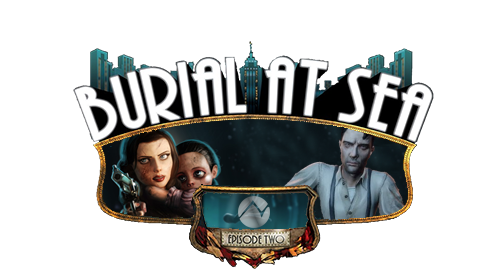I never cared how Big Daddies got developed, I never cared how Atlas got the pass phrase from Suchong, none of that was important to the original BioShock. Infinite offered a world of infinite possibilities, of infinite worlds, and yet once again we are dragged back to Rapture to fill in minor holes to the plot that nobody really needed answers to.
I don't think the issue is that they answered these questions. Personally, as a HUGE fan of Bioshock one I though all of these things were super cool to witness. It just made the world of Bioshock one that much more interesting.
The issue is, as you mentioned, that it does a disservice to the ending of Bioshock Infinite and all of the potential that that represented. I think, as someone mentioned earlier, opinions on this one are going to be fairly split between people who enjoy Bioshock one more and people who enjoyed Bioshock Infinite more. This DLC clearly seems to favor one over the other.
But, then at the same time Burial at Sea fails to answer really any of the big questions left from Infinite, like where the fuck is Booker? Is he back in his own timeline with Elizabeth? Where is Elizabeth? Why was she hunting Comstock's? What exactly are the Lutece's doing? How many Elizabeth's are there? Is she the last one? Why does this one not have her pinky cut off?
Comstock-Booker is Dead. Booker-Booker is back in his original timeline before Comstock and the Lutece's interfered.
Elizabeth is now dead. Only Anna remains.
She was hunting the Comstocks out of revenge, closure, protection for others.
What are the Lutece's doing at which point?
There are no more Elizabeths.
Yes, she is the last one.
She doesn't have her pinky cut off because in this game she is no longer in her god-form. She's not split between universes, she's whole.
Elizabeth mentions in the DLC something about a cycle of killing between Booker, Comstock, herself, etc. and didn't want Sally to follow the same path. So basically Booker's sacrifice at the end of Infinite wasn't him doing good by his long lost daughter and giving her her life back, but instead just a giant revenge scheme?
No, Booker's journey was about exactly that. Burial at Sea is about Elizabeth's journey post-Infinite. It's an epilouge for infinite and a prolouge for Bioshock one. It doesn't devalue anything that happened in the original game, as far as I can tell.
So she dies to save one girl while at the same time giving the main villain of Bioshock 1 everything he needs to control Jack, and this was all the culmination of her being strung along the entire time. Her grand purpose in the overall scheme of things was to be a tragic and tortured puppet that "redeems" herself by saving one kid? (I interpret the Lutece's convincing Daisy to get Elizabeth to kill her as their endgame to turn Elizabeth into a murderer to kill all Comstock's, in other words they manipulated her and Booker the entire time including through Burial at Sea episode 1)
Again, not quite. She sacrificed herself as a form of redemption. She saw the future, she knew that she would die, but she also knew that her actions would bring Jack to Rapture. Jack went on to save every single little sister. It wasn't just about Sally. Elizabeth mentions in Fink's quarters how it's a pathetic attempt because even if she saves Sally "She'd be lucky to put a dent in the whole operation." But the omniscient version of Elizabeth that chose to come back to Rapture knew better, she knew that her death wouldn't be in vain. She essentially came to the same finale as her father: sacrifice for the life of a (or, in this case, many) little girls.
The Lutece's talking to Daisy wasn't related to this Elizabeth journey, but was actually a way to justify her actions that many people took trouble with in the main Infinite campaign. The Lutece's manipulated Booker (and apparently Daisy as well) in the main game in order to end Comstock and save Elizabeth, but their influence ended there. Daisy died in order to give Elizabeth the strength she needed to get to Comstock. Daisy so his end as a victory for her movement, so she decided to become a martyr for the cause. It's hamfisted, but it's not as bad as you're making it sound.












